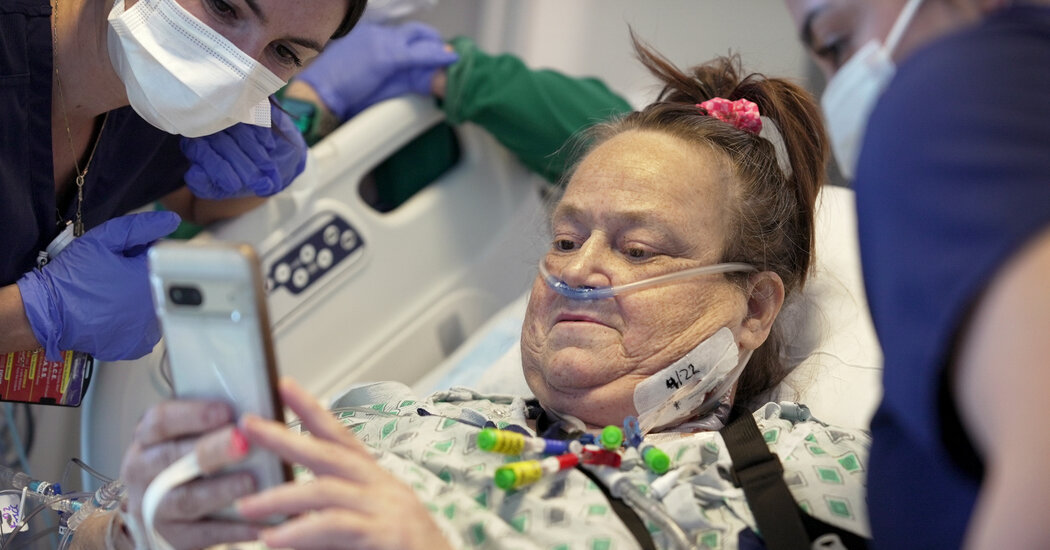A 54-year-old New Jersey woman who became the second person to receive a kidney transplant from a genetically modified pig and lived with the organ for 47 days died Sunday, surgeons at NYU Langone Health announced Tuesday.
The patient, Lisa Pisano, was critically ill, suffering from both kidney and heart failure. She received the pig kidney on April 12, just eight days after being implanted with a mechanical heart pump.
Surgeons were forced to remove the kidney on May 29 after it was damaged by inadequate blood flow related to the heart pump. After the removal, Ms. Pisano resumed kidney dialysis but was eventually transferred to palliative care.
Ms. Pisano made medical history as the first person with a heart pump who also received an organ transplant. Patients with kidney failure are usually not eligible for a heart pump because of the high risk of death.
Dr. Robert Montgomery, director of the NYU Langone Transplant Institute, said Dr. Pisano has made major contributions to the emerging field of xenotransplantation, the transplantation of organs from one species to another.
“Lisa’s contributions to medicine, surgery and xenotransplantation cannot be overstated,” said Dr. Montgomery. “Her courage has given hope to thousands of people with end-stage kidney or heart failure who may soon be eligible for alternative organ supply.”
The first patient to receive a kidney from a genetically modified pig was Richard Slayman, 62, who underwent the procedure in March at Mass General Brigham in Boston. Although he was well enough to be discharged two weeks after the operation, he, like Ms. Pisano, suffered complex medical problems and died within two months.
Although the field of xenotransplantation has made great progress in recent years, the procedures are still experimental. Only patients who are so ill that they are unfit to receive a human organ and are at risk of dying without treatment have been approved to receive animal organs.
The two kidney transplants from genetically engineered pigs performed this year were approved under the Food and Drug Administration’s compassionate use, or expanded access, program for patients with life-threatening conditions.





